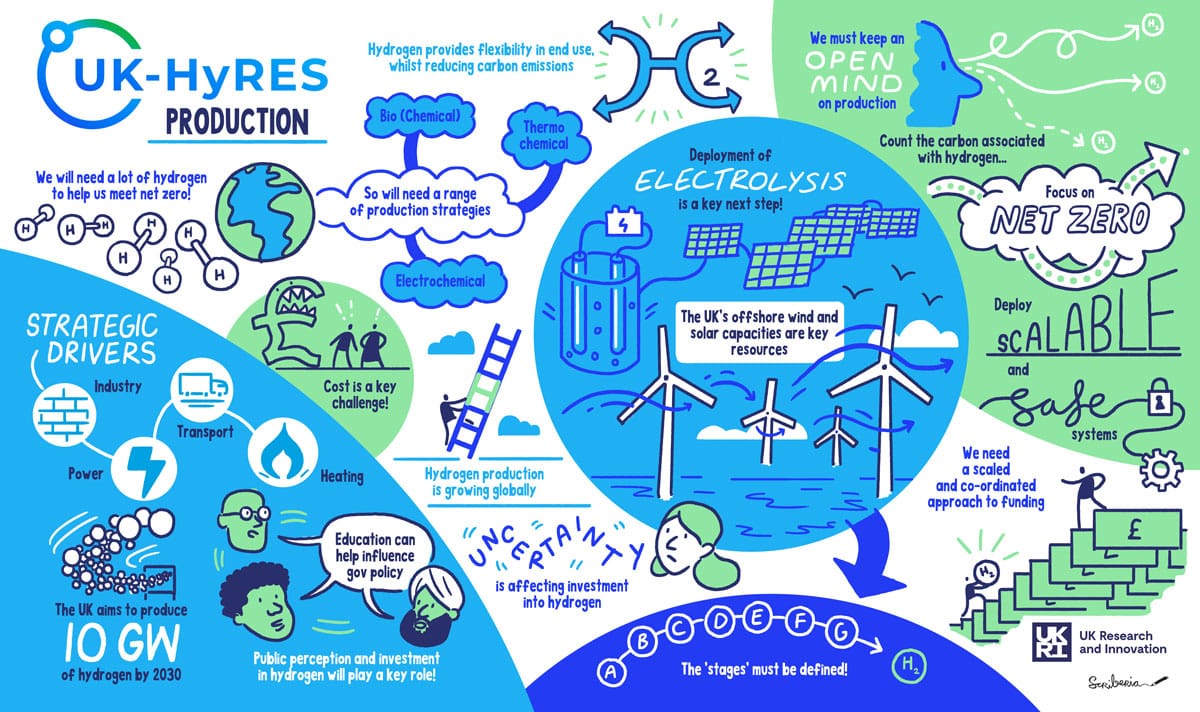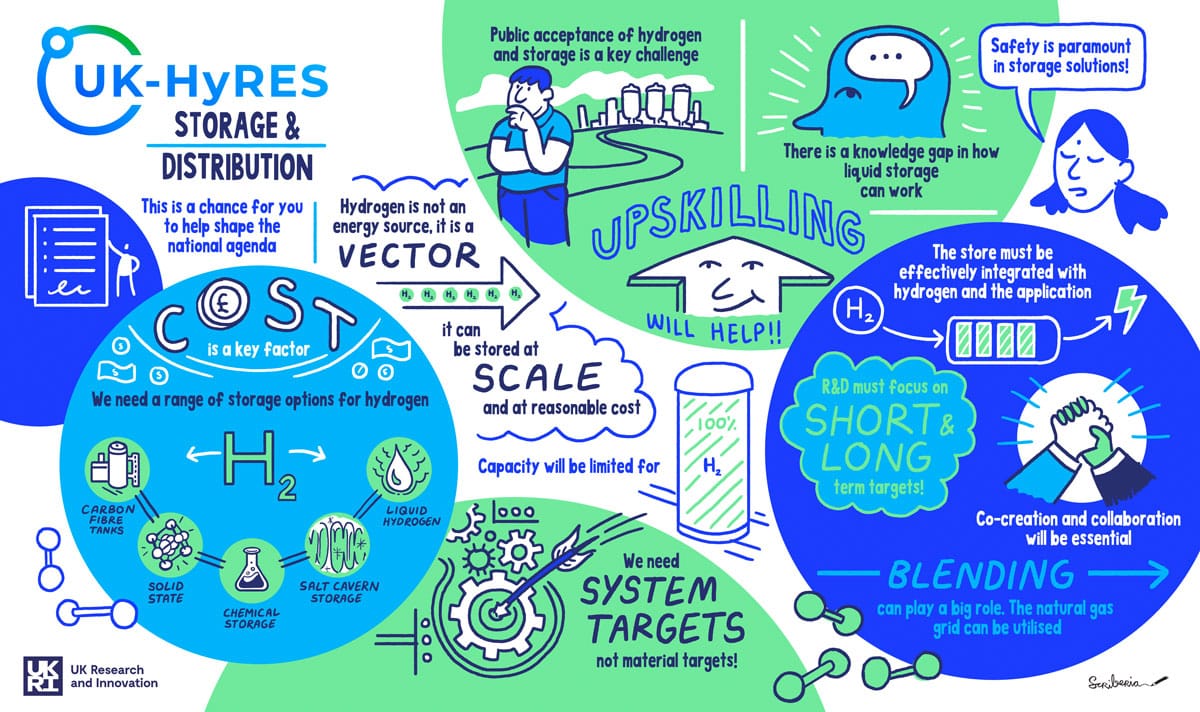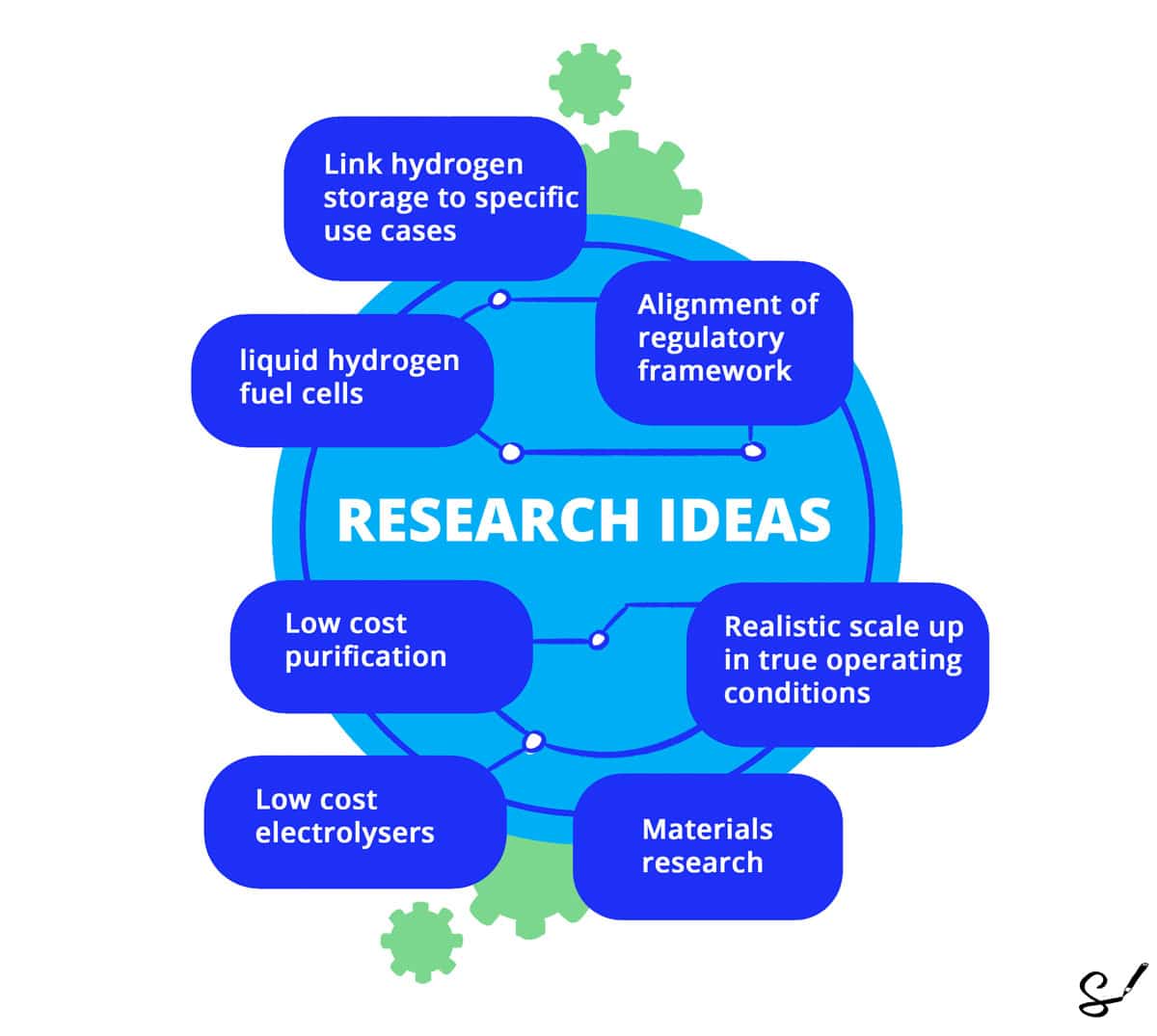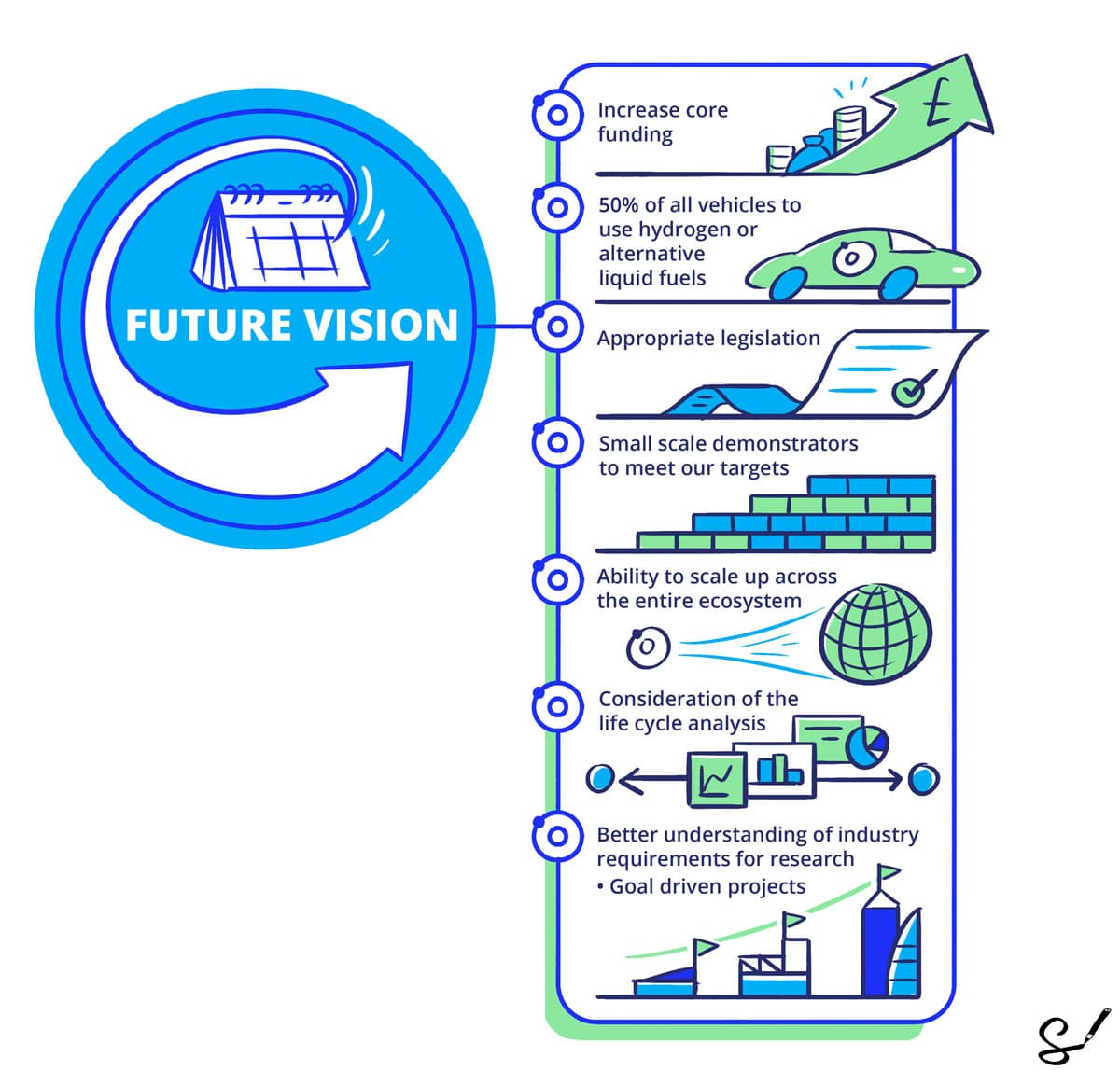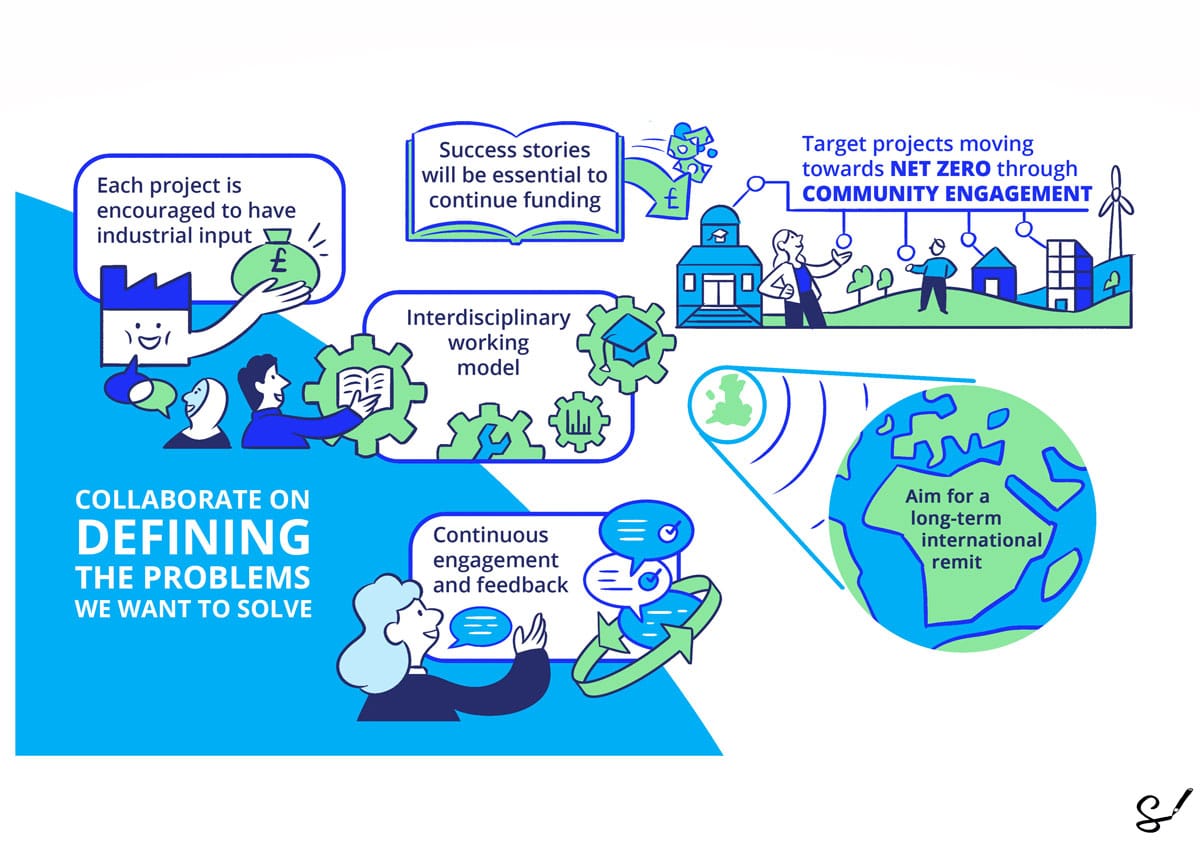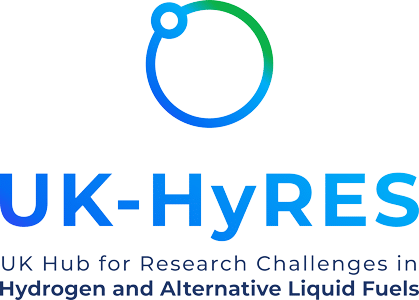UK Hub for Research Challenges in Hydrogen
and Alternative Liquid Fuels

Hub Phase
Hydrogen and hydrogen-based, low-carbon liquid fuels, such as ammonia, are essential for the UK to reach net zero emissions by 2050.
Hydrogen is a highly versatile energy vector suitable for use in many hard-to-decarbonise sectors where other energy options, such as electricity, are not suitable.
UK-HyRES will drive forward the national effort in hydrogen research that is needed to facilitate this critical area of technology to meet industry and government needs.
The team will coordinate a national, interdisciplinary programme of research to ensure a pipeline of projects that can deliver practical hydrogen and alternative liquid fuels technologies that are safe and environmentally, economically and socially sustainable, de-coupling fossil fuels from our energy system and delivering greener energy.
The project is led by Professor Tim Mays, University of Bath, co-directed by Professor Rachael Rothman, The University of Sheffield, and Professor Shanwen Tao, University of Warwick. Partner universities include University College London, University of Portsmouth, St Andrews University and University of Surrey.
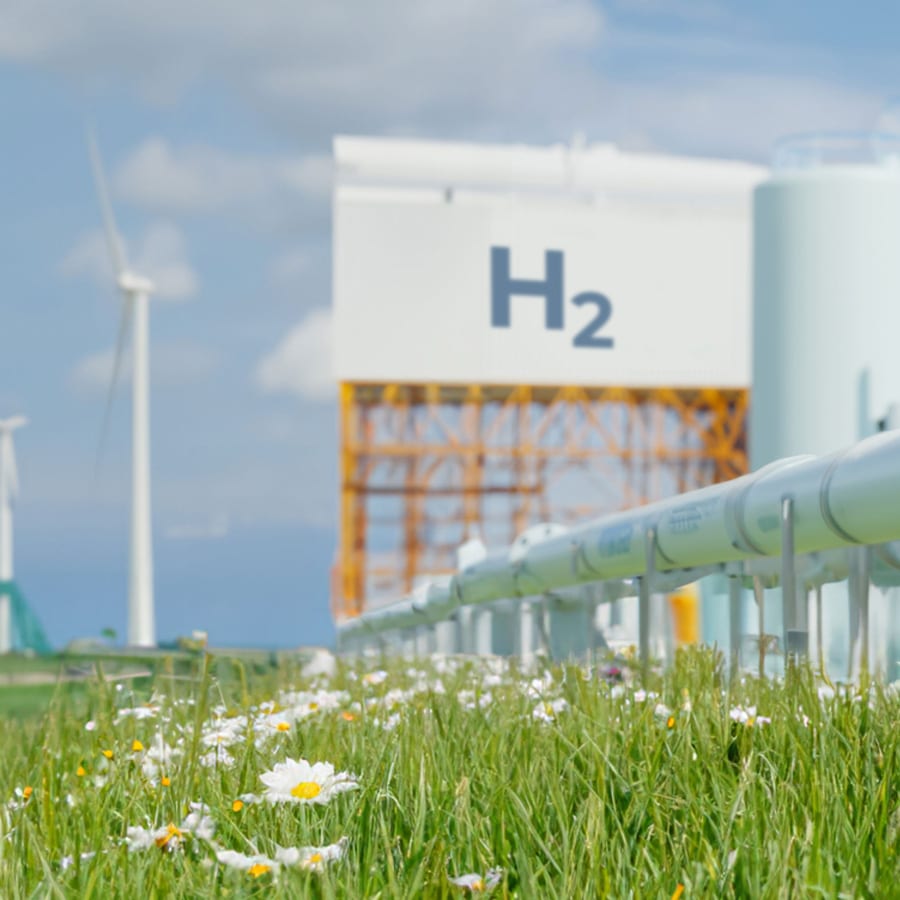
The Project In Numbers
Forging collaborations to catalyse impactful, peer-reviewed research in support of the UK’s Net Zero objectives.
Research Themes
Core University Partners
EPSRC Funding
Accessible Flexible-Fund
Industry and Public Companies Consulted
Researchers and Industrialists Engaged
Projects Already Defined
Research into how we make, store, distribute and use hydrogen and other alternative liquid fuels to power the energy, heating and mobility systems in our society is absolutely essential if we are to achieve our national targets of reaching Net Zero by 2050. At Bath we have the expertise and ambition to deliver this important work, and this major funding from UKRI is crucial for us to develop the UK-HyRES hub into a research centre of national strategic importance and global impact.
PROF. TIM MAYS
Hydrogen and low-carbon liquid fuels, such as ammonia, are important energy vectors for the low-carbon economy. We are privileged to be selected as one of the hydrogen researcher coordinators.
PROF. SHANWEN TAO
Hydrogen will be a hugely important part of the future as we move towards net zero and it’s important to work out where, when and how it makes sense to produce, transport and use it. I am very excited to co-Direct the UK-HyRES Hub and lead on the environmental theme. We will be analysing process and technology alternatives to ensure their implementation really will reduce carbon and other environmental emissions. This helps to find truly sustainable solutions and avoid unintended consequences.
PROF. RACHAEL ROTHMAN
A thriving, low carbon hydrogen sector is essential for the government’s plans to build back better, with a cleaner, greener energy system.
PROF. TIM MAYS
Reaching our net zero targets is a big challenge requiring interdisciplinary research and collaboration across the energy supply chain.
PROF. RACHAEL ROTHMAN
Research Theme Leads
The project is led by Professor Tim Mays, University of Bath, co-directed by Professor Rachael Rothman, The University of Sheffield, and Professor Shanwen Tao, University of Warwick.
Partner universities include University College London, University of Portsmouth, St Andrews University and University of Surrey.
Hub Structure
UK-HyRES will also provide a network and collaboration platform for fundamental research, and be a focus for industry, policy and other stakeholder communities, to tackle research challenges that underpin the production, storage, distribution and end use of H&ALFs. The hub’s unique structure has been developed to deliver maximum impact – focusing on four technical themes (production, storage / distribution, end use and alternative liquid fuels), and four cross-cutting themes (environmental, economic, social sustainability and safety).
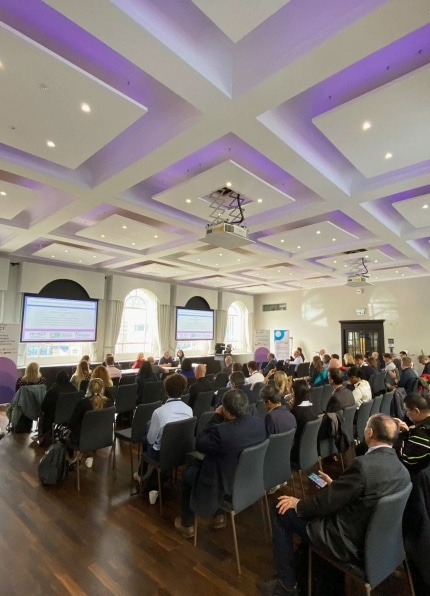

Insights, Discussions, and a Shared Vision for the Future of Hydrogen in the UK
View the Workshop Outputs
UK-HyRES is engaging nationally with academic, industrial and policy stakeholders to discuss and identify research challenges the solutions to which will accelerate the deployment of sustainable H&ALF technologies to help the country achieve its legally binding net zero carbon emissions target by 2050 and hence contribute to mitigating disastrous global heating.
Coordination Phase
The UK-HyRES Coordination Project began in April 2022 and closed May 2023. It was a collaborative project between the Universities of Bath, Sheffield and Warwick, led by Professor Tim Mays at the University of Bath and funded by UKRI.
The project aimed to tackle the research challenges blocking the wider use of hydrogen in the UK through research activities including UK-wide stakeholder engagement workshops.
The Co-ordinator project team engaged stakeholders and use a ‘theory of change’ process to map the greatest research challenges, as well as potential solutions to these challenges and their impacts.
They focused on the potential for these fuels to decarbonise land, water and air transport, electricity generation and domestic and industrial heating as well as high CO2 emitting industries such as the manufacture of steel, cement, glass, and fertilisers. Together these areas make up about 90% of UK greenhouse gas emissions.
Implemented Through Accessible, Facilitated Workshops with Direction from Special Advisers
Strategic Drivers
Challenges and Barriers
Opportunities for Research
Outputs
Change (Outcomes)
Impact (Difference & Added Value)
Hydrogen and hydrogen-based, low-carbon liquid fuels, such as ammonia, are essential for the UK to reach net zero greenhouse gases by 2050. Hydrogen production will be doubled to accommodate the UK’s newly announced energy strategy.
Initial Engineering and Physical Sciences Research Council (EPSRC) funding for the project totalled over £400k, with a further 5 month funded project extension. The other co-ordinator project exploring better systems integration of these fuels was headed up at Newcastle University by Professor Sara Walker.
This second project, Hydrogen Integration for Accelerated Energy Transitions (HI-ACT), worked to coordinate a fundamental shift in critical lifecycle analysis for optimisation of operational and planning decision support for the integration of hydrogen and alternative fuels into the UK energy landscape.
There was good engagement from industry, with high-profile project partners including ITM Power, Health and Safety Executive, Jaguar Land Rover, GKN Aerospace, Wales and West Utilities, Siemens Energy and the Scottish Hydrogen and Fuel Cell Association.



